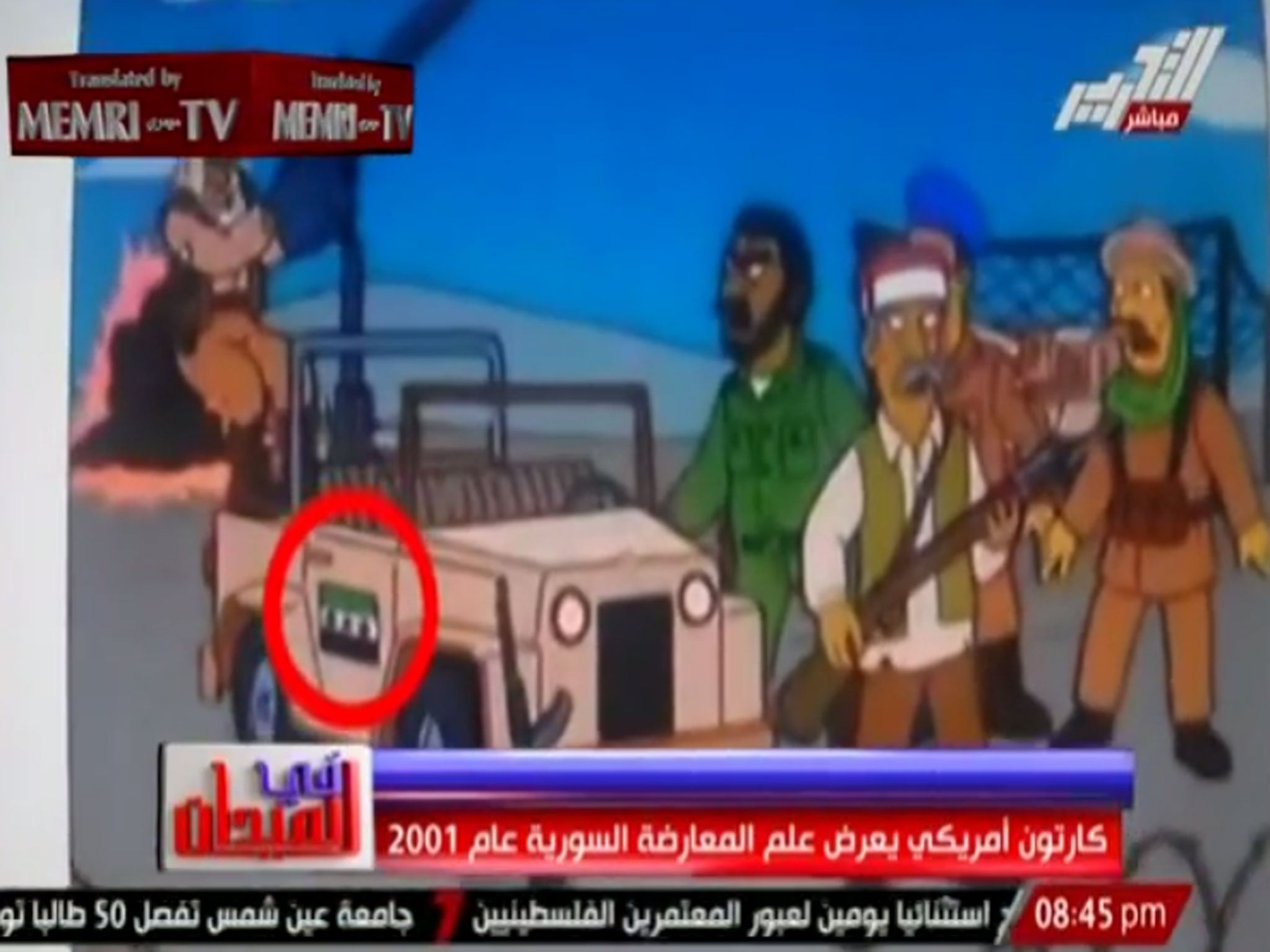The Simpsons used in Egyptian TV channel as proof of US conspiracy to incite Syria's civil war

An Egyptian television channel has claimed the United States is behind Syria's civil war citing an episode of the popular American sitcom The Simpsons.
Watch the video below
The report, which aired on Al-Tahrir TV on Sunday, showed footage of an episode broadcast in 2001 which, according to the Egyptian channel, raises "many question marks" about Washington's role in the Arab Spring and Syria's civil war.
In the episode New Kids on the Blecch, the always mischievous Bart Simpson and his friends, Milhouse, Nelson and Ralph, are tapped to form a boy band and are seen piloting war planes and dropping bombs on an unnamed Arab country in a music video for their single, Drop Da Bomb.
Before showing the video, Al-Tahrir's presenter warned viewers: "The video you are about to see shows animated figures dancing, flying airplanes and dropping bombs on what must be Syria because there are other animated figures below in Arab garb and the Syrian (opposition) flag appears on one of the vehicles."
She goes on to suggest that the ongoing civil war which has ravaged the country was "premeditated" and the US was involved in the conspiracy, noting that a jeep in The Simpsons music video displays the flag that is now used by the Syrian opposition.
"That’s why people are saying on Facebook that this is a conspiracy," she added. "In 2001, there was no such thing as the flag of the Syrian opposition This episode was created back in 2001, before the Syrian opposition even existed."
The report was posted to online by the Middle East Media Research Institute (MEMRI), which, according to its website, aims to bridge the language divide between the West and the Middle East by "providing timely translations of Arabic, Farsi, and Hebrew media".
Join our commenting forum
Join thought-provoking conversations, follow other Independent readers and see their replies
Comments